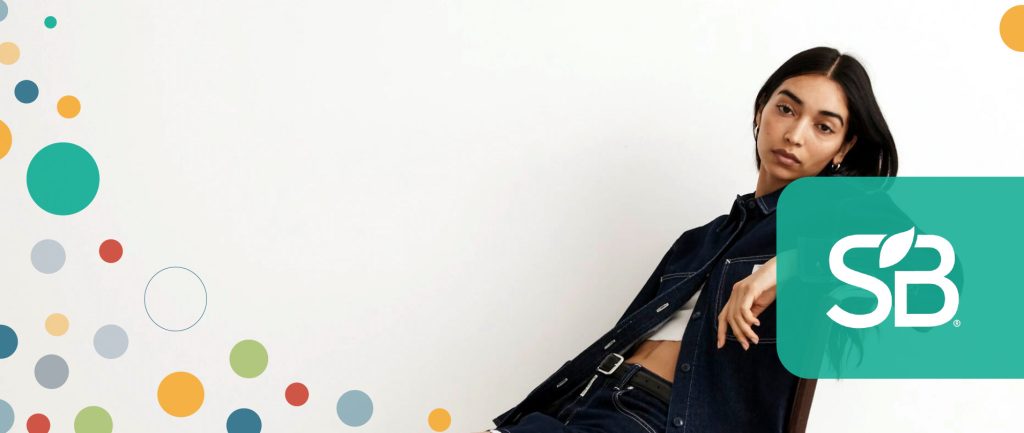bluesign Continues to Clean Up Fashion with Expansion into Denim, Footwear
4 min read
Partnerships with brands including Madewell and Vibram will help adapt bluesign’s existing standards and guidelines for two untapped industries.
With a lineage spanning more than two decades,
bluesign® is one of the longest-running
and well-known apparel responsibility standards. Its guidelines require
participating brands and manufacturers throughout the supply chain to adhere to
strict product, worker safety and chemistry controls. Over 500 apparel and
textile companies — including
adidas,
Asics,
G-Star,
Nike
and
Primaloft, to name a few — all participate in bluesign in some capacity; and its long
list of partners continues to grow.
2023 marks a cautiously ambitious new direction for bluesign as it formalizes
its approach in the denim and footwear categories. Earlier this year, bluesign
announced bluesign Denim — a comprehensive platform to work towards “the
cleanest denim in the world,” and a partnership with global footwear component
producer Vibram.
“It was something new for bluesign, and they were asking for a lot of
information,” Vibram’s global director of sustainability, Marco
Guazzoni, told Sustainable Brands®.
“We agreed on doing it step by step.”
Both frameworks will take bluesign’s existing standards and guidelines and adapt
them for two industries where it doesn’t have as much of a presence. Although
2023 marked the formal announcement for both initiatives, the actual work
predates the launch by a couple of years.
How Plastic Bank Is Leading a Shift to a Regenerative Future
Join us for this free webinar as Plastic Bank explores the role of traceability, powered by technology, in building consumer trust; as well as strategies that empower brands to uplift communities in vulnerable coastal areas using plastic materials as currency for a better life — Tues, September 26, at 9:00am PDT.
Bluesign has been working with Madewell since early 2022, leading to a formal
launch of several denim products using bluesign-approved fabrics. According to
Madewell’s 2022 Do Well Report,
the brand plans to have another 13 bluesign-approved styles by the end of 2023
(Madewell declined to comment for this story). Kutay
Saritosun, bluesign’s
director of brand services and partnerships for Europe and US, says
bluesign has been working with Vibram and other, as-yet-unidentified brand
partners on product pilots since 2021.
“We have a roadmap for footwear,” Saritosun says. “But it’s not something we can
certify tomorrow — it will take at least another two years.”
He adds that by his estimation and in consideration of the traditional apparel
product cycle, the earliest a fully bluesign-approved denim product would land
in Madewell stores would be fall 2024. Given the complexity of “cleaning up”
the denim
process,
which is one of the most resource-intensive within apparel, it could take longer
than that.
Consumer confusion may reign
Much like other sustainable textile and chemistry standards, the external
communication around bluesign-approved denim and footwear products may prove
challenging for consumers.
While bluesign already has “approved” fabrics in play at Madewell, a completely
approved item may not be on sale for some time. For footwear, it’s likely that a
brand could adopt Vibram’s bluesign-approved sole well before it launches a
fully approved sneaker. Essentially, a brand can claim that a portion of a
product is “bluesign-approved” without the whole product being so; and that’s a
potentially blurry line to discern for the average customer. It’s important to
note these key differentiating factors in an apparel market full of claims,
certifications and standards with little regulatory backing.
“There are too many distinct features within too many standards to have one
consumer preference,” Paul
Dillinger, VP and head of
global product innovation at Levi Strauss & Co, told SB. “It’s great (that
these standards are) extending their work beyond the mill and into the supply
chain; but it’s about more than one message of ‘good vs. bad.’”
Levi’s recently launched a 97 percent plant-based
jean
and last year, released a circular denim
collection
— which included more easily recyclable and reusable components compared to
traditional denim.
According to Daniel
Waterkamp, head of
bluesign Academy, bluesign is about to
launch a potential solution to the communication issue in the form of “smart
labeling” — a program that will attempt to bring some clarity around all
bluesign-approved fabrics in external marketing and communications.
“We will very clearly spell out claims with verified data — noting what
bluesign-approved is, what it’s not — and still have approval points,” he says.
Both Waterkamp and Saritosun advise that part of the communication battle is
working through the conception that just because something is marketed as
“sustainable” or “responsible” doesn’t necessarily mean that it was more
expensive to make.
“Safe and sustainable chemistry doesn’t always need to be more
expensive,”
Waterkamp says. “For a brand like Vibram, the cost isn’t much higher; but
marketing plays a bigger role.”
Saritosun adds that it’s economically viable because companies can work with
bluesign from the systems and approaches they already have in place.
Regardless of consumer reaction to the improved messaging, it’s a positive step
to help customers and industry professionals alike understand the value of
shifting towards more responsible production practices, in all forms. Even if
consumer adoption is slow, expanding the bluesign ecosystem to these new
categories should only serve to broaden the potential of what could be.
“It’s not appropriate for us to look at consumer uptick,” Dillinger says. “Even
if the consumer doesn’t respond, we shouldn’t stop trying to cut carbon
emissions.”





